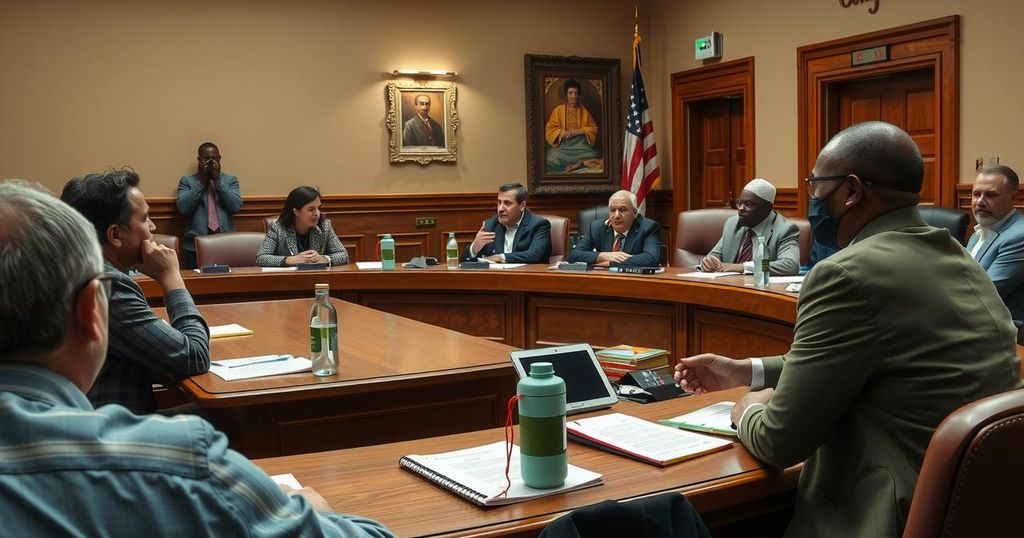Morocco: Activists Face Legal Charges Over Earthquake Response Criticism

Four activists advocating for earthquake victims in Morocco faced charges, including defamation, stemming from their criticism of the government’s disaster response. Said Ait Mahdi is in custody, while the other three activists await trial. The September 2023 earthquake resulted in nearly 3,000 deaths and prompted public outcry for quicker reconstruction efforts, to which authorities have responded with substantial funding and permits issued.
On Monday, four activists advocating for the victims of the 2023 earthquake in Morocco faced legal proceedings, with particular attention on Said Ait Mahdi, the head of the Al Haouz Earthquake Victims Coordination. Ait Mahdi is currently in custody on charges of defamation, insulting public officials, and disseminating false information. These accusations relate to social media critiques directed at the government’s response to the tragedy. The other three defendants are at liberty as they await trial while also facing similar charges regarding their comments about public officials.
The earthquake, which struck the High Atlas mountains in September 2023, resulted in approximately 3,000 fatalities and the destruction of tens of thousands of homes. In the aftermath, Ait Mahdi’s organization has been vocally demanding expedited reconstruction efforts to assist families affected by this disaster. In response, Moroccan authorities have issued more than 57,000 reconstruction permits and allocated a budget of $740 million dedicated to rebuilding communities devastated by the earthquake.
The legal proceedings against these activists highlight the ongoing tensions between civil society’s calls for accountability and the state’s management of natural disaster responses in Morocco. The tragedy of the September 2023 earthquake prompted significant public discourse regarding governmental accountability and efficiency in relief efforts. This incident underscores the critical role that advocacy organizations play in representing the voices of those affected by national tragedies and the challenges they face from state authorities when expressing dissenting opinions.
The case of the activists in Morocco illustrates the complicated relationship between civic activism and government authority in the wake of a national disaster. As recovery efforts unfold, the need for swift and effective communication between the state and its citizens becomes increasingly evident. The large number of reconstruction permits issued and substantial financial resources allocated signal the authorities’ intention to address the needs of earthquake survivors. However, the legal challenges faced by the activists also indicate the potential repercussions of speaking out against government actions.
Original Source: newscentral.africa







